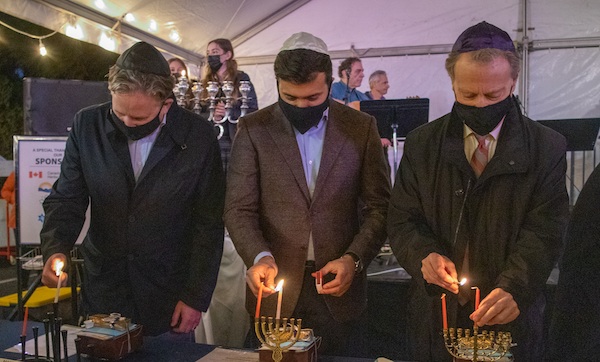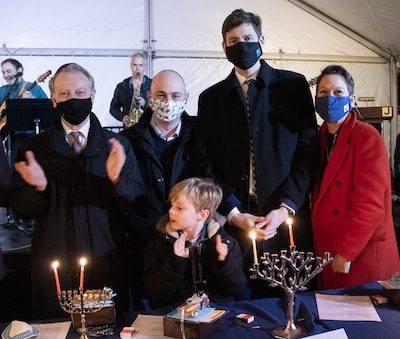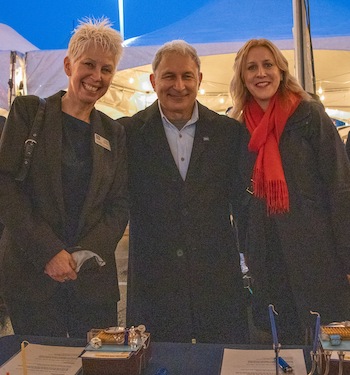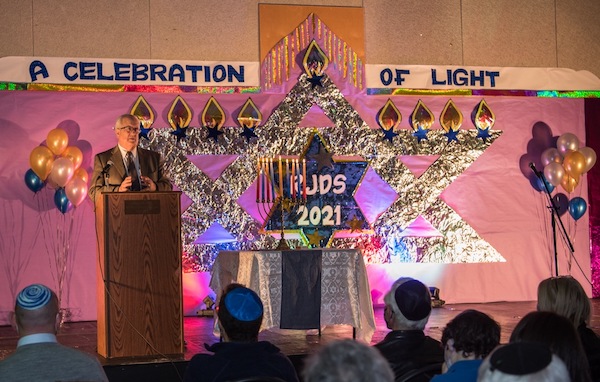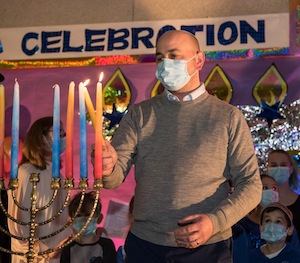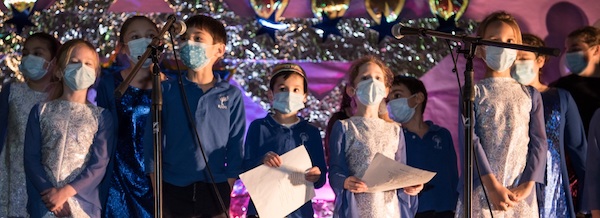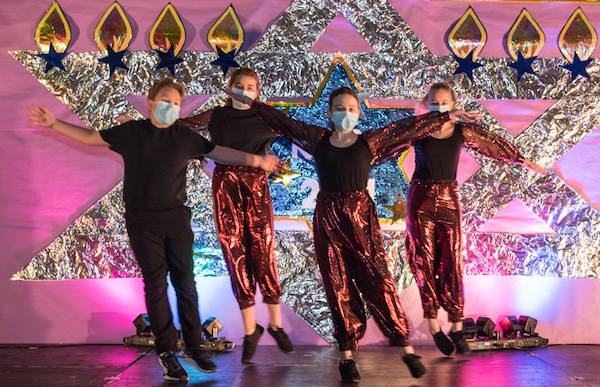The house directly behind ours is for sale. This neighbourhood doesn’t have back lanes, so we look out over their backyard as well. Occasionally, when I’ve stepped outside with the dog, I encounter a family checking out that house’s yard, just beyond my fence. I always call out, smiling, welcome them and say I hope they will be our new neighbours. I’ve had several wonderful interactions, and one that gave me the creeps – the potential buyer, a man in camouflage with a woman trailing behind, left me unsettled. I took my big dog back inside and locked the door.
Our shared back fence needs to be mended. There is a tree, partly on our property, which needs to be trimmed. We never managed to meet the old neighbours, who we hear were seniors who couldn’t manage the upkeep and needed to downsize. We planned to try again to talk to the neighbours about the fence and the tree, but then the For Sale sign went up. Now we await the next occupants.
Overall, we’re delighted with the friendliness of our new neighbourhood. We took our weekend morning dog walk with another neighbour and her baby and participated in our community clean up. It’s a thoughtful place, where we help each other remember the yard waste pickup days or we look out for lost items. Yet fences exist for a reason – not just to keep dogs and kids in the yards, but also to provide us with personal space.
These encounters reminded me of Robert Frost’s famous poem “Mending Wall” and its unforgettable line “Good fences make good neighbours.” This poem (which is available online and worth reading) often springs to mind when I’m considering how to navigate in the world.
Jewish life also has lots of boundaries and reminders for how to order our lives and relationships. This is such a big part of our tradition that it’s hard to offer only one example. There are the ways we read the Torah portion each week, or how we get married or how we bury loved ones, how we are to educate our kids or how we should treat our elders. Our tradition offers us lots of structure and ideas for how we are to behave in a Jewish context.
All this came to mind when talking to a friend about work boundaries, which we’ve both struggled with addressing. She works unpredictable shifts. They sometimes seem assigned at random and she’s worked every weekend in recent memory. Her schedule isn’t dependably the same. There are weeks where she works six days in a row. Other times, she is told to go home early due to lack of work, or has several days off unexpectedly. It becomes very hard to make solid plans, like when I might see her next, or even when she can easily pick up groceries or consistently go to a once-a-week event.
I have a household that thrives on routine. For best success, we plan the heck out of things. If my kids have an afterschool activity and I’m taking them there, I’ve often thought out dinner and gotten it into the slow cooker before I start work in the morning. We have a dog that doesn’t like to be alone, a fair number of household medical appointments, and our old house is still undergoing needed renovations. We parents are spread thin! For me, having an unpredictable work meeting or emergency outing can disrupt this fragile equilibrium. Planning makes everything possible. It’s how I fit in my various paid and volunteer commitments, my kids’ and household needs, and also, I joke, my eating and sleeping.
In most Jewish practices, we’re a people of moderation, things have to be in balance. Like Frost’s poem, sometimes what makes us “good neighbours” are those walls, the boundaries we create to make structures that enable us to cope. We need structure. In religious life, we might call some of those structures rituals or behavioural expectations: derech eretz, how we are to behave towards one another. Whether it’s from the Tanakh (Torah, Prophets and Writings) or from rabbinic teachings, we’ve got a framework that helps us create those metaphoric walls.
Unfortunately, it can be hard to actually maintain our own boundaries when things get out of hand. It’s hard to stand up to a difficult work situation or a bully at school and say, “No, this is out of bounds.” Yet, most of the time, this is what we have to do to maintain our dignity and move forward. Sometimes, we have to remind others that “this isn’t in the job description” or, for kids coping with a bully, “No, I don’t have to respond when you say hurtful things. I can walk away and tell an adult.”
Good boundaries help us become better people, better workers, or even more thoughtful in our Jewish practice. However, it’s hard to find the courage to respond appropriately and draw one’s “line in the sand.”
Today, my twins went to the backyard for raucous playtime with pool noodles. They hopped on and off the deck, sparring with their imaginary swords, as they dueled and chased each other. Much later, right before bedtime, I heard that one of them saw a woman at “that house for sale.” My son demonstrated her expression of distaste as she gazed at them and his bad feeling about it – but my kids were safe in our yard as they played, laughing on our side of the fence.
Setting boundaries for ourselves, or fixing a literal fence, can sometimes mean everything. It may make good neighbours or give us orderly schedules that allow us to more calmly cope with our lives. Staying healthy and promoting our well-being might not always be wrapped up in spa days or vacations. We might promote wellness by saying no when others overstep. We can embrace structures, rituals, traditions or routines that make us feel best, allowing time for pool noodle sword play or a consistent day off work. We need boundaries in all things, work and play, because it’s the good fences that make good neighbours.
Joanne Seiff has written regularly for CBC Manitoba and various Jewish publications. She is the author of three books, including From the Outside In: Jewish Post Columns 2015-2016, a collection of essays available for digital download or as a paperback from Amazon. Check her out on Instagram @yrnspinner or at joanneseiff.blogspot.com.

